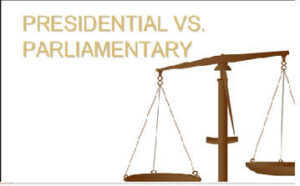Universities should accept equal numbers of male and female students in every
subject. To what extent do you agree or disagree?
University education is crucial for human development and sustenance because it not only provides high-level skills necessary for every labor market but also prepares teachers, doctors, nurses, civil servants, engineers, humanists, entrepreneurs, scientists, social scientists, and myriads of other professionals to serve mankind. As far as admissions in a university is concerned some people are of the view that the universities should accept equal numbers of male and female students in every subject.
However, if universities start giving admissions to equal numbers of male and female students in every subject in order to break gender stereotypes and promote gender equity in the workforce and job market this would negate merit-based education, professional preferences, individual skills and hard work, and quality of education. So the idea of equity in giving admissions is totally discriminatory and supportive of a potential gender-biased approach.
Instead of the equal number of admissions in universities and colleges gender inclusive policies should be adopted and enforced. These include gender pay equity, parental leave, gender-neutral education, combating gender-based violence, and increasing the political representation of women to maintain equity and gender balance.
In the first place, the idea of giving admission to an equal number of male and female students in every subject revolves around the concept of gender equity. Equal representation of male and female students in all subjects can promote gender equality and break down traditional gender roles and stereotypes.
Also, this can get away with the historical gender underrepresentation of females in subjects like Science, Technology, Engineering, and Mathematics. This can somehow contribute to a more equitable job market. Moreover, seeing more female students in various subjects can serve as an inspiration and encourage younger generations of girls to pursue their interests indiscriminately.
Paradoxically speaking, gender equity is important in universities and other educational institutions but equality in admissions would discourage the meritocracy within the education system and job market. This approach would also compromise the quality of education if students are admitted solely based on their gender. Moreover, instituting strict gender quotas would promote the idea of favoritism within the universities as some individuals might be favored or disfavored based on their gender rather than their qualifications.
In order to support a gender-balanced approach granting admission to an equal number of male and female students is not a necessary prerequisite. Instead, other steps should be undertaken by the policymakers. Likewise, gender-inclusive policies must be in place.
For instance, Norwegian schools provide a gender-neutral learning environment, encouraging students to pursue their interests and talents regardless of traditional gender norms. In addition to that, Norway has made significant progress in increasing women’s political representation. Political parties are encouraged to promote gender diversity in candidate selection, leading to a higher number of women in parliament and government positions.
The country has implemented policies to combat domestic violence and violence against women. For this, support services, helplines, and shelters are available for victims of gender-based violence. Last but not least is the Gender Equity Act of Norway which promotes equal treatment and opportunities for all genders.
In conclusion, it is not pertinent for universities to accept equal numbers of male and female students in every
subject. Instead, students should have the freedom to pursue subjects based on their interests and talents, rather than meeting a gender-based quota.
Besides, gender-based discrimination must be tackled within and outside educational institutions to maintain an environment of equity. Furthermore, gender inclusivity must be the focus of policymakers.
📍 English Language Educator | Blogger & Content Strategist | 7+ Years in Educational Blogging
Nosheen Bashir is a dedicated English teacher and experienced blogger with over seven years of expertise in content creation and educational writing. Passionate about language, literature, and effective communication, she combines her teaching experience with blogging skills to create insightful, research-backed content that helps learners and educators alike.
🔹 Expertise & Achievements:
✔ English Language Education: A skilled educator with years of experience in teaching English grammar, literature, and communication skills to students of varying levels.
✔ Educational Blogging: Running a successful blog for 7+ years, delivering well-structured, engaging content on language learning, writing techniques, and academic success.
✔ SEO & Content Strategy: Specializes in creating high-ranking, authoritative articles that follow Google’s EEAT principles, ensuring content that is both informative and search-friendly.
✔ Student-Centric Approach: Committed to making English easier, engaging, and accessible, helping readers and students improve their language proficiency.
🚀 With a passion for teaching and writing, Nosheen Bashir is dedicated to crafting educational content that empowers students, teachers, and language enthusiasts worldwide.











